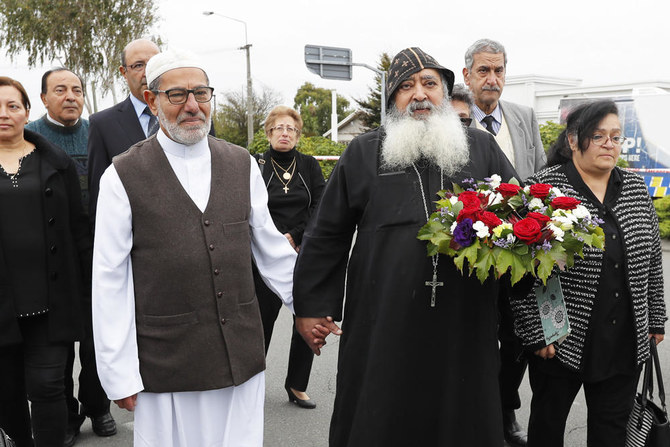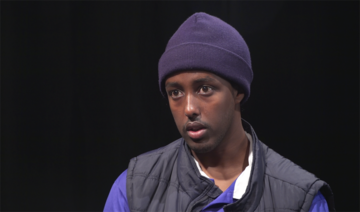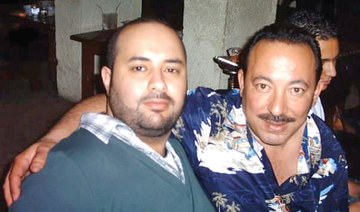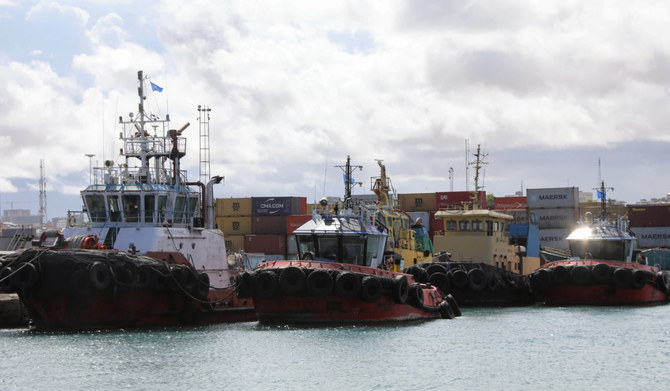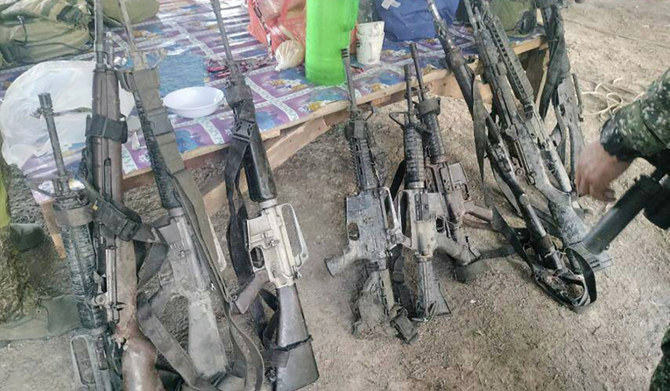CHRISTCHURCH, New Zealand: Families of the people killed in the Christchurch mosque shootings are enduring an increasingly agonizing wait for the bodies of victims to be released as New Zealand reels from the unprecedented tragedy.
Three days after Friday’s attack, New Zealand’s deadliest shooting in modern history, relatives were anxiously waiting for word on when they can bury their loved ones. Islamic tradition calls for bodies to be cleansed and buried as soon as possible after death.
Aya Al-Umari, whose older brother Hussien Al-Umari died at the Al Noor mosque, said “It’s very unsettling not knowing what’s going on, if you just let me know — is he still in the mosque? Is he in a fridge? Where is he?“
Authorities say they hope to release all the bodies by Wednesday.
Meanwhile, dozens of graves were being dug in a Christchurch cemetery on Monday for some of the dead victims.
Coroners said they hoped to let grieving relatives fulfill Islamic burial customs soon, but insisted they had to move carefully through their investigation into the horrific multiple murder.
Islamic custom dictates that the dead should be buried within 24 hours, but strained authorities — desperate to make sure no mistakes are made or the complex investigation harmed — said a quick process was difficult.
“All of the deceased have had a CT scan, their fingerprints are taken, the property they were wearing or had with them is removed,” said Chief Coroner Deborah Marshall, adding that dental impressions were taken and post-mortems performed.
Ardern said she expected all the dead would have been returned to their families by Wednesday.
An AFP reporter early Monday saw workers and excavators preparing dozens of graves in Christchurch cemetery, though it was unclear when the funerals might start.
“It’s a massacre, what else do they need to know?,” said school principal Sheikh Amjad Ali, expressing frustration over the wait for loved ones’ remains.
The dead from Friday’s attack span generations, aged between three and 77, according to a list circulated among relatives.
Some victims came from the neighborhood, others from as far afield as Egypt. At least two of the dead came from the same family — a father and son.
Delhi said Sunday that five of its nationals were killed, while Pakistan said nine of its citizens were among the dead, including one man who died trying to rush gunman Brenton Tarrant.
Terrorist's manifesto
As New Zealand grappled to come to terms with the slaughter — the worst attack on Muslims in a Western country in modern times — Prime Minister Jacinda Ardern was holding a cabinet meeting Monday to address gun laws and intelligence failures.
Ardern was among about 30 officials who received the lengthy, meandering and conspiracy-filled far-right “manifesto” prepared by Tarrant, an Australia-born, self-avowed white nationalist who has been arrested in the March 15 terrorist attack on worshippers at the Al-Noor and Linden mosques in Christchurch.
“It did not include a location, it did not include specific details,” said Ardern, adding that it was sent nine minutes before the rampage and handed to security services within two minutes.
Around Christchurch, New Zealand and the world there have been vigils, prayers, memorials and messages of solidarity.
An emotion-filled haka — the Maori war dance — was performed by a New Zealand biker gang to honor the Christchurch dead.
The country remained on high alert, with police on Sunday briefly closing an airport in the southern city of Dunedin — where Tarrant had lived — after an unidentified package was spotted on the airfield. The airport re-opened a few hours later.
In Australia, counter-terrorism police searched two homes early Monday, both near the town of Grafton where Tarrant grew up.
“The primary aim of the activity is to formally obtain material that may assist New Zealand police in their ongoing investigation,” a police statement said.
Fighting for life
Authorities said 34 people remained in hospital.
Among those fighting for their lives is four-year-old Alin Alsati. The pre-schooler was praying alongside her father Wasseim at the Al Noor mosque when she was shot at least three times.
Her father, who was also shot, recently emigrated to New Zealand from Jordan.
The number of dead and injured could have been higher, were it not for people such as Afghan refugee Abdul Aziz.
Aziz was at the Linwood mosque with his four sons when he rushed the attacker armed with the only weapon he could find — a hand-held credit card machine.
He then picked up an empty shotgun discarded by the gunman and shouted “come on here” in an effort to draw him away from his sons and the other worshippers.
“I just wanted to save as much lives as I could, even if I lose my life,” he told AFP.
The mosque attacks have shaken this usually peaceful country, which prides itself on welcoming refugees fleeing violence or persecution.
Ardern has said she would use the cabinet meeting to press for a ban on semi-automatic weapons of the type used by Tarrant. A series of reform attempts in recent years have failed.
Ardern also wants answers from social media giants over the livestreaming of the carnage.
Facebook said it had removed 1.5 million videos of the attack around the world in the first 24 hours.


